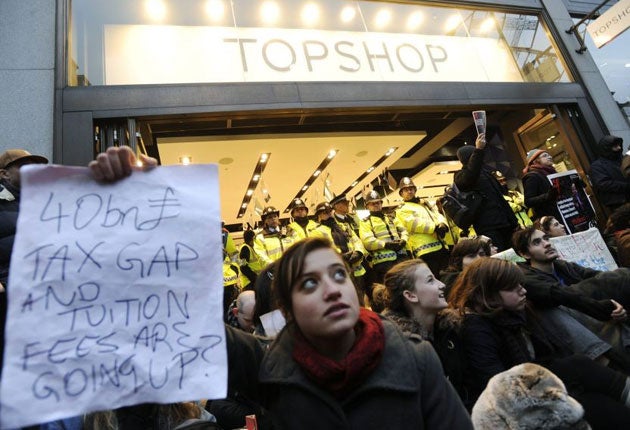Online petitions: sign in and be counted
Can online petitions ever pack as much of a punch as pen and ink? Alice-Azania Jarvis investigates

Your support helps us to tell the story
From reproductive rights to climate change to Big Tech, The Independent is on the ground when the story is developing. Whether it's investigating the financials of Elon Musk's pro-Trump PAC or producing our latest documentary, 'The A Word', which shines a light on the American women fighting for reproductive rights, we know how important it is to parse out the facts from the messaging.
At such a critical moment in US history, we need reporters on the ground. Your donation allows us to keep sending journalists to speak to both sides of the story.
The Independent is trusted by Americans across the entire political spectrum. And unlike many other quality news outlets, we choose not to lock Americans out of our reporting and analysis with paywalls. We believe quality journalism should be available to everyone, paid for by those who can afford it.
Your support makes all the difference.All it takes is the click of a mouse button. For most "online activists" – those of us who sit at home and join, virtually, the various protests that come our way – very little is required. We're not risking our safety on the front line, we're sitting at our desk, adding a hash tag to our tweets or joining a group on Facebook. But we're doing something – or that's what we tell ourselves.
Last week, it was Show Your Support for Egypt. This week, it's Save Our Forests. Countless pages spring up on Facebook. "Click here for a link to our petition," they say. It's so easy, and when it's done, you can sit back, smug. It's a fast-track to feeling good.
But does it make any difference? Last year, Malcolm Gladwell sent a ripple through the digital world with his insistence that it didn't. The great civil rights movement of the 1960s couldn't have achieved what it did, he said, had the internet taken the place of local networks and community organisation. No doubt he's right: the Greensboro sit-ins required the sort of intimate, involved relations forged through years of living, working, and attending church together.
"Clicktivism" has become the common, derogatory catch-all for online protest. But it's not always a fair one. Allying yourself to a cause online may be easy, but that's not to say it accomplishes nothing. Protest group Avaaz has demonstrated this only too well. With almost seven million internet members, it can propel the most obscure cause to prominence in record time. Users lend support for issues ranging from conflict chocolate to bee conservation – frequently with concrete results. When Avaaz allied with anti-trafficking charity Ecpat, it got some 310,000 people calling on the Hilton hotel group to commit to stamping out abuse in its hotels. A shaming billboard was threatened, and Hilton promptly relented.
In Britain, online activism may soon have the power to shape legislation. Ten Downing Street has long housed a page dedicated to public petitions, its effectiveness (or lack thereof) neatly demonstrated by the perpetual presence, in the final year of his premiership, of a petition for Gordon Brown to resign. But the Coalition Government has announced that any e-petitions made via the new Directgov website and boasting more that 100,000 signatures would be debated in Parliament.
Away from the traditional medium of the petition, Twitter, Facebook and YouTube have all proved their worth, in terms of both organising protests and awareness-raising. UK Uncut, the direct-action group responsible for shutting down Topshop during the Christmas rush, was born as a Twitter hash tag. When a few friends sent out tweets inviting people to join them in protesting against Sir Philip Green's alleged tax avoidance, they had no idea so many would arrive. Likewise, YouTube footage from recent student demonstrations has forced the police to defend their heavy-handed tactics – in particular their treatment of the wheelchair-bound Jody McIntyre. And who could forget one of the biggest stories of the past year: the leaking of thousands of government cabals via the hacktivist website WikiLeaks.
Online activism may be easy. It may be cheap. And it may be no substitute for the old-fashioned, placard-waving alternative. But as a tool in itself, it has all kinds of potential.
Join our commenting forum
Join thought-provoking conversations, follow other Independent readers and see their replies
Comments